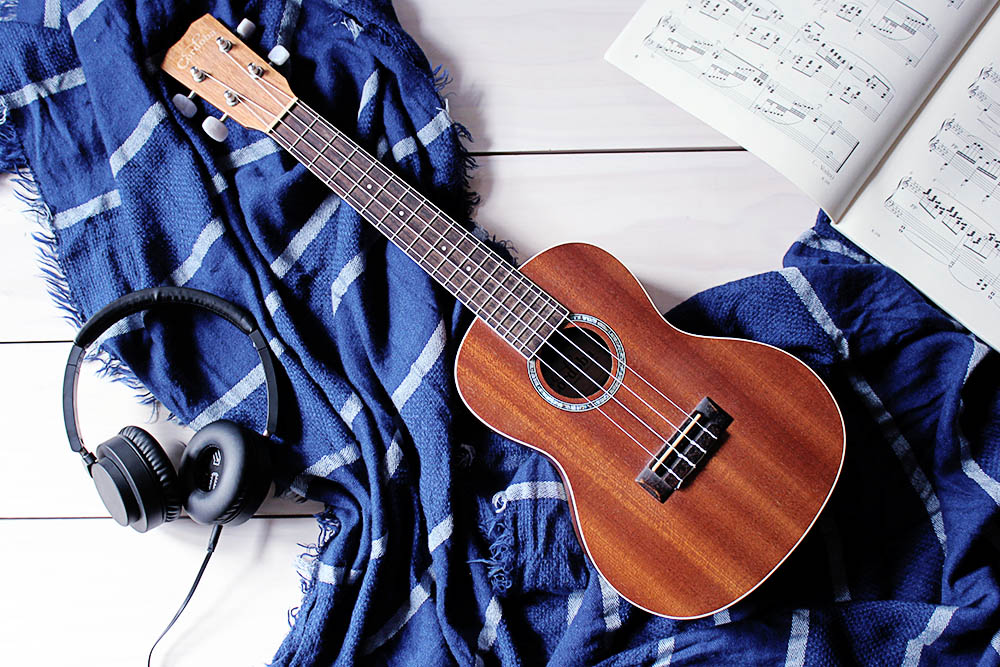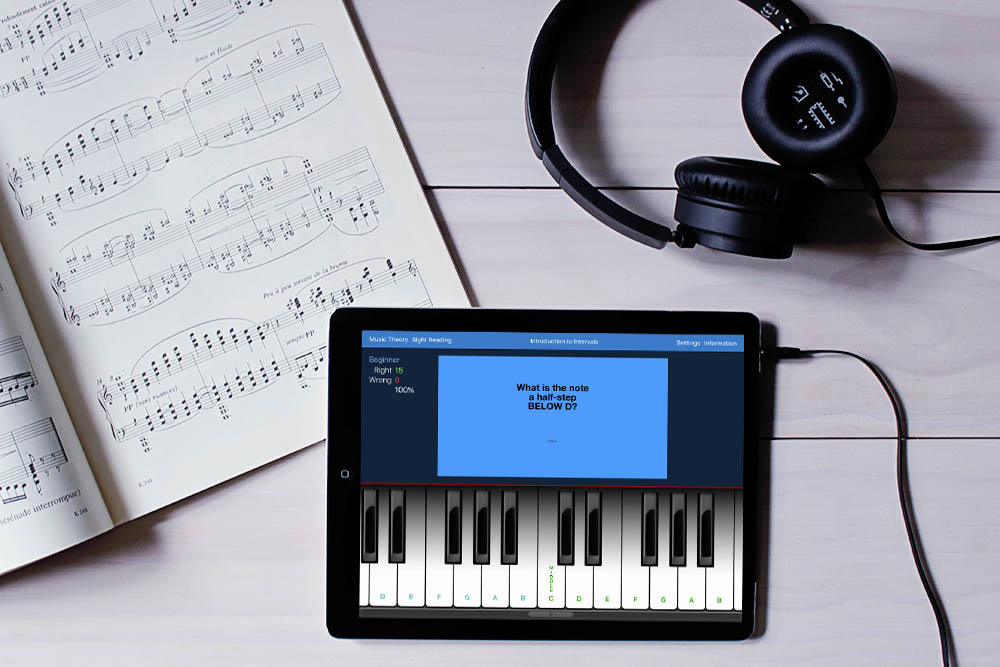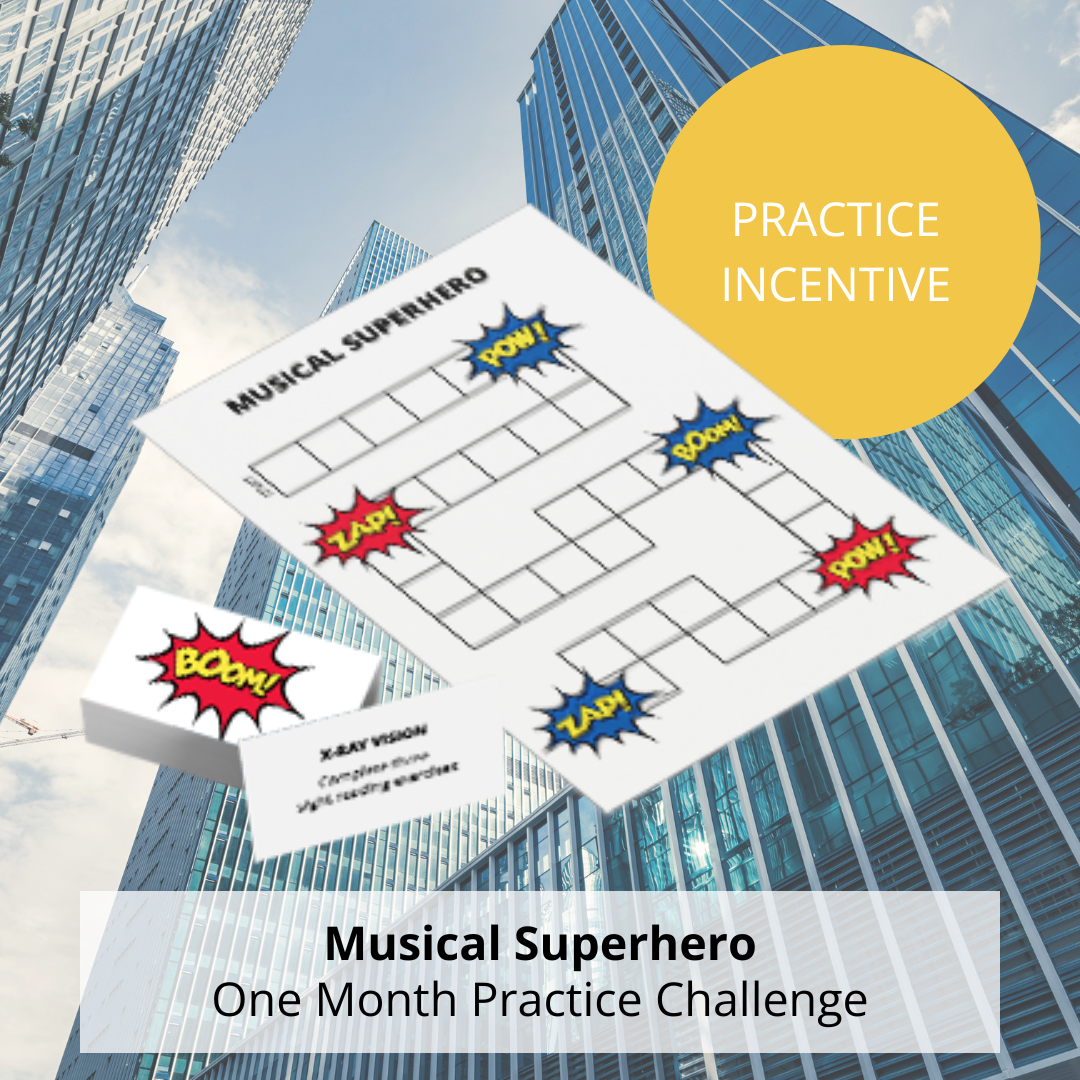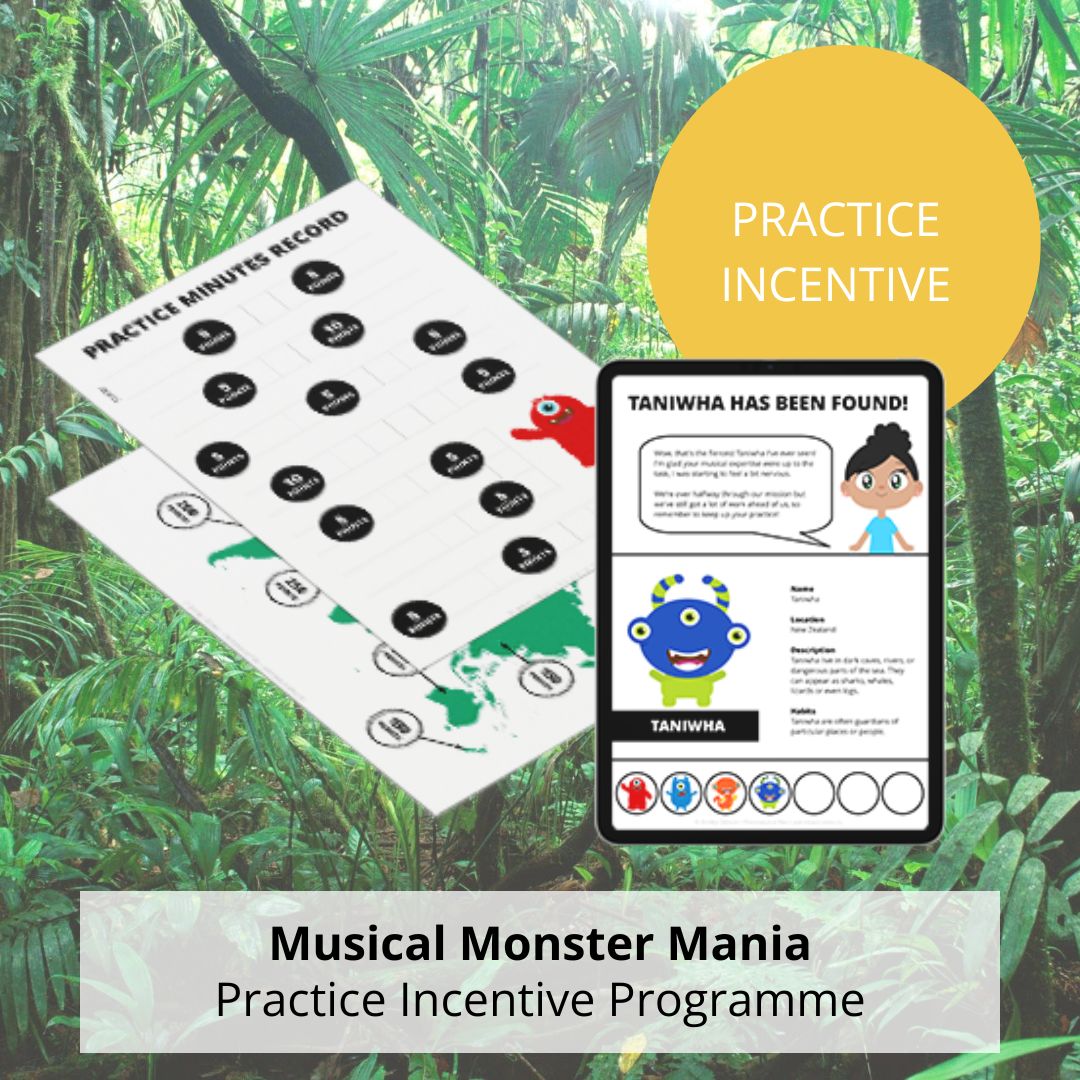6 Strategies to Create a Daily Music Practice Habit
6 Strategies to Create a Daily Music Practice Habit
We all know that regular practice is the key to success, but managing to actually do it can be a challenge! Here are six strategies that can help you to create and maintain a daily music practice habit. Try one (or more!) of these methods and make amazing progress on your musical goals!
Commit (and Recommit)
Once you’ve decided to build a daily music practice habit do these three things first:
1. Make the Commitment
Make your goal official and you’re more likely to actually stick with it. So write it down, tell a friend, post about it on social media… do something that will make you feel accountable and more motivated to follow through.
2. Accept That Things Will Go Wrong
No matter how good your intentions and how well you’ve been doing, there will come a time when (dun dun dun) you miss a day of practice. And once that happens it can be really difficult to keep that momentum going.
Too often, we fall into an all-or-nothing cycle with our habits. The problem is not slipping up; the problem is thinking that if you can’t do something perfectly, then you shouldn’t do it at all.
James Clear
Instead of giving up, accept that some days (hopefully few and far between!) you won’t manage to practice. And that’s OK!
3. Make a Plan for Getting Back on Track
When you don’t expect a perfect record, it takes the pressure off plus gives you a chance to come up with some strategies for getting past any slumps. Here are some approaches for continuing with your daily music practice habit, even when you don’t manage to practice every day:
- Let yourself miss only one day, never two in a row
- Make up missed practice time on a different day
- Allow yourself a small number of “cheat days” each month when you don’t have to practice
- Aim for progress not perfection
- Start again and try to improve on your previous best practice streak
- Take a deep breath and keep going!
Action Step: make a goal to practice your instrument every single day, and work out what to do when you miss a day (or days!)

Decide on a Bare Minimum
Let’s be honest, aiming for an hour (or more!) of music practice every day is quite an intimidating goal. The logistics of trying to set aside such a big chunk of time is difficult, and you’ll be much more likely to put it off.
Instead try and trick your brain into practicing by setting your target low. Finding five or ten minutes (to practice technique or focus on that one problem area in a piece) is a much more realistic goal and a lot easier to achieve.
What are the benefits of having a bare minimum for your daily music practice? You’re more likely to find some spare time in your busy day; spending a few minutes practicing is better than nothing, and you’ll still find yourself making progress; and once you’re actually playing your instrument you might find yourself getting in the zone and doing a lot more than you planned!
Action Step: work out the bare minimum time you want to spend on practice each day. Anything beyond that is a bonus!
Bookmark Your Habit
I learned this genius tip from Sarah Von Bargen of Yes and Yes, and it involves finding a “bookmark habit” to take the place of your “full habit” when you’re unable to do it.
Often, the maintenance and momentum of the habit is almost more important than the habit itself!
Sarah Von Bargen
So when you’re trying to build a daily music practice habit, you’ll need to come up with some alternative activities for the times you can’t actually play your instrument. Some ideas:
- Try mental practice
- Actively listen to a recording of a piece you’re working on
- Use an app for theory, scales, ear training, rhythm training, or note reading practice
- Find a way to practice physical movements (table tapping for piano, ghost bowing for violin, fingering on a pencil for flute or recorder)
- Read through your sheet music
- Watch a tutorial on YouTube
Action Step: pick a couple of activities that don’t require an instrument, and plan to do these when you can’t practice
Use Kaizen
If you like the idea of making gradual daily improvements then Kaizen might be just what you need. The focus is on starting small. Smaller than you’re thinking. And then even smaller than that. You’ll be taking steps so tiny you’ll barely notice it, but as you continue slowly increasing both time and effort you’ll be building a super strong habit.
Here’s some ideas on how to create a daily music practice habit with Kaizen:
Step One
Think about your ultimate goal when it comes to music practice. How long do you want to spend practicing every day? What material do you want to cover? What activities do you want to include?
Step Two
Take the first small action. Sit down at/pick up your instrument and play a couple of notes or chords (that’s it!). Repeat for a couple of days.
Step Three
Add a little more. Play one short scale, technical exercise, or chord progression. Keep it up for three or four more days.
Step Four
Expand what you’ve been working on. Will you play a more complex scale? Focus on a couple of bars from a piece you’re working on? Learn the first line of a new song? Include this new exercise in your practice time for the next few days.
Step Five
Continue adding small activities to your practice sessions every few days, until you eventually build up to the goal you identified in Step One.
Obviously this approach is going to take some time, but you’ll find the results are worth it!
Action Step: identify a few (very!) small steps and slowly build up your habit over time

Have a Practice Trigger
A time or activity can both be used as ways to “trigger” music practice. Here’s how the two approaches can work:
1. Schedule a Regular Time
If you love routine and having set times during your day for certain activities, then work with your natural inclinations and find a time of day when you can fit in your music practice. And then actually schedule it into your calendar. Block off the time, set a reminder, and then stick to it!
In contrast, if committing to doing something at exactly the same time every day makes you feel like the walls are closing in (I’m guessing that’s not just me!) there is another way to schedule your practice time:
2. Stack Your Habits
No matter how much you enjoy spontaneity and flexibility in your schedule, I can guarantee that you already have at least one daily habit. This might be something basic (like eating lunch or brushing your teeth) or a habit that is already well established into your day (like exercise or a coffee break). Once you’ve identified an existing daily habit, plan to practice either directly before or directly after.
Action Step: find a certain time of day or an existing daily activity to “trigger” the start of your practice each day
Track Your Progress
Unfortunately, progress towards musical goals isn’t instant and sometimes isn’t even that obvious in the short term. Staying motivated can be hard, so it’s important to focus on what you can control (like how often you practice) rather than your results. Keeping a record of the days you practice can be very satisfying, and doesn’t have to be complicated! Here are a few options:
- Use a calendar and cross off every day you practice
- Download an app designed especially for tracking habits (I use the free Loop Habit Tracker)
- Get this free printable 100 Day Project Tracker, commit to 100 days of music practice, and colour in a circle each day you achieve your goal
- Keep a tally of how many minutes you spend practicing every day (use a spreadsheet for bonus organising points!)
Action Step: find a digital or paper way to track the days that you practice to have a visual record of your progress
If you’d like more tips and tricks on how to create a daily music practice habit then be sure check out these resources:
Articles:
- How to Build a New Habit: This is Your Strategy Guide by James Clear
- How to Strengthen Your Good Habit Muscle by Sarah Von Bargen
- Sticking to a Habit: the Definitive Guide by Leo Babauta
Books:
- Atomic Habits by James Clear
- Big Dreams, Daily Joys by Elise Blaha Cripe
- The Habit Guide by Leo Babauta
Resources:
-
 Musical Superhero$10.00
Musical Superhero$10.00 -
 Musical Monster Mania$40.00
Musical Monster Mania$40.00
